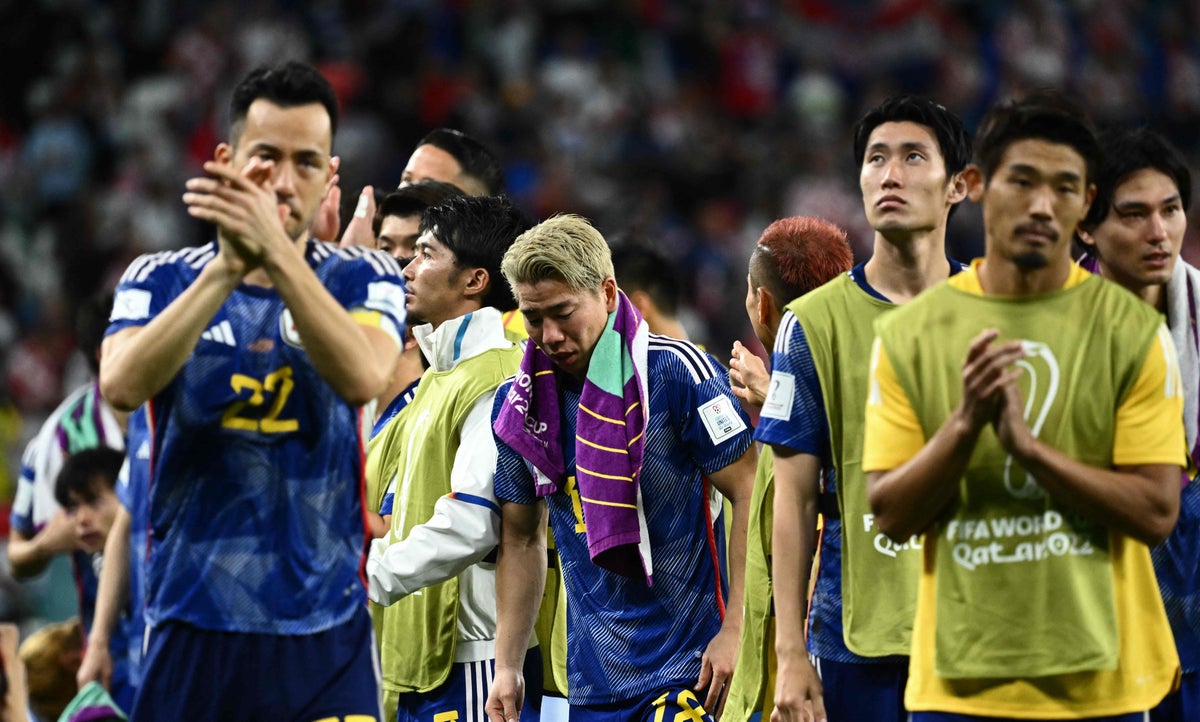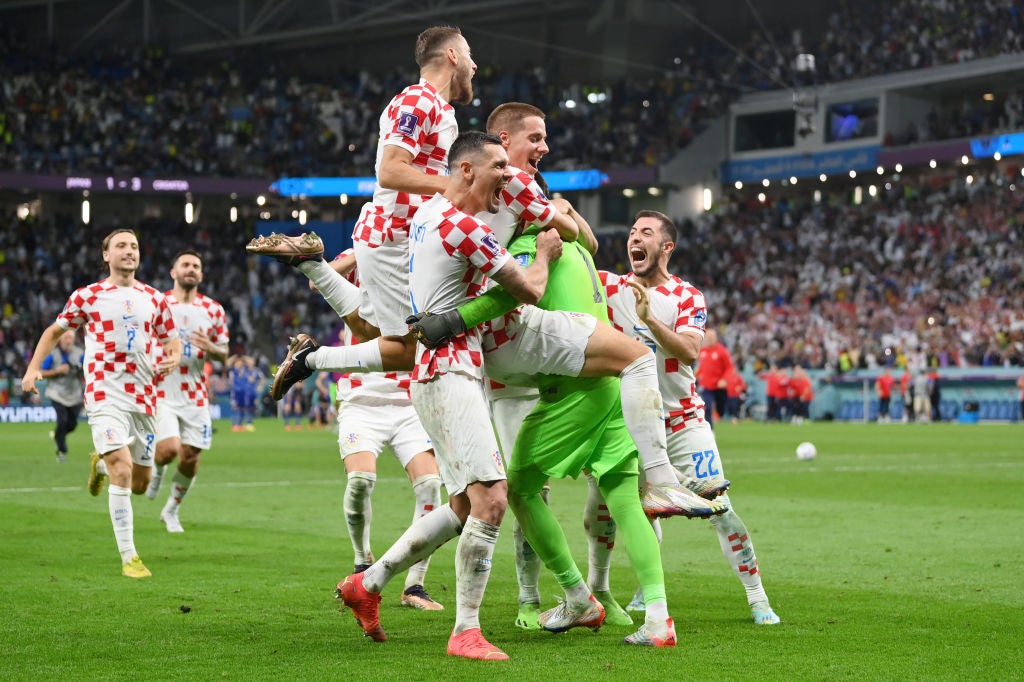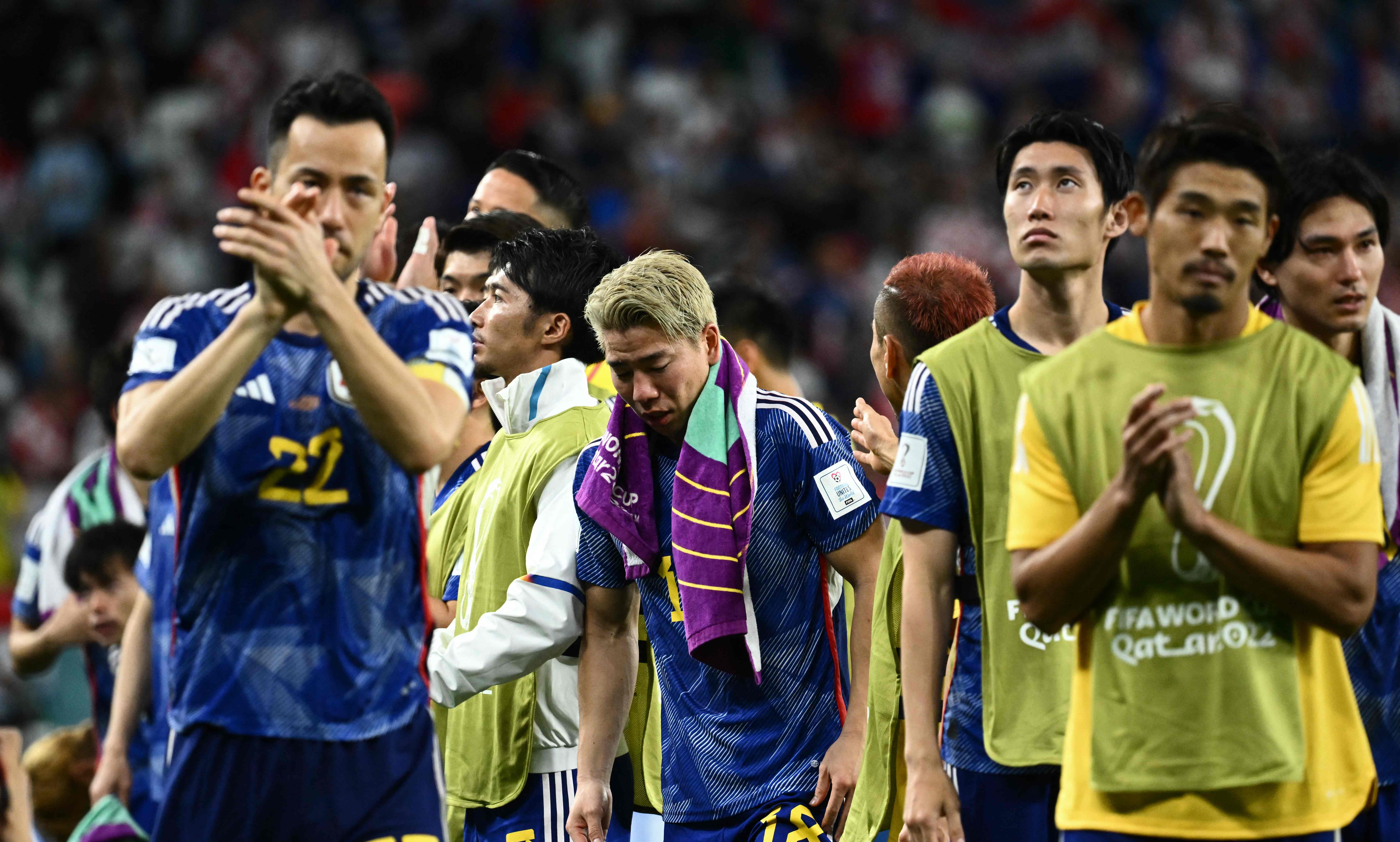
Japan have never made it past the last-16 at a World Cup. Failures at 2002 and 2010 still stung when 2018 became the most heartbreaking of all, Nacer Chadli’s latest of late goals seeing Belgium roar back from two down in the second half to beat them at the last.
The pain of that night in Rostov has lived with this Japanese group ever since. “I have never forgotten,” Yuto Nagatomo would say in the build-up to this latest attempt to write new history. He will remember this, too.
Instead it was the same old story, the fairytale this side has been on at this World Cup brutally ended in the most painful fashion possible by Croatia, a bitter final chapter the uplifting tale that came before it didn’t remotely deserve.
It came in a penalty shootout, just as it did 12 years ago against Paraguay, goalkeeper Dominik Livakovic this time playing the role of spoiler to perfection, saving three spot kicks to see his team advance.
With runs like the one this Japanese team have been on over the last fortnight there is a tendency to start to believe that the impossible really is possible, that the cards will come up your way each and every time you need to them to.
Nights like this one, one you see at every tournament, offer a jarring counter, though, the realism only flooding in when it’s all over, the rude awakening from the dream that came before.
After so much fantasy, the facts: Croatia are in the quarter-finals. Japan are going home.
Nagatomo, the veteran leader of this group and appearing here at a fourth World Cup, had called on his teammates to show “samurai spirit” against Croatia, to show a fearlessness in the face of another stiff challenge after passing so many before already in Qatar.
They had produced two of the biggest shocks of this tournament, in defeating Germany and Spain accounting for winners of five World Cups in the space of three matches and nine days. They would top the group, the great La Roja behind them. Germany, the tournament team of tournament teams, would have to watch them both in the last-16 from home.
Those famous victories were inspired by countering arch control with absolute chaos, two goals in eight frantic minutes stunning Germany in the opener before two in even fewer – including the one that has inspired such controversy since – left Spain “dismantled” in the second, as a shellshocked Luis Enrique would later observe.
Despite the results Hajime Moriyasu’s conservative gameplans to get them at this tournament have prompted some criticism back home, though, a country who have long taken such inspiration from the passionate brand of football played by Brazil far less enamoured with the far more prosaic version seen here despite its clear effectiveness.
They had 35 per cent possession against the Germans, a mere 22 per cent against the Spanish, their key point of difference at this World Cup coming in what they do without the ball rather than much of what they do with it.

If two of the tournament favourites were picked off rather than played off the park, it was a different story against the Croatians, Japan choosing to play on the front foot against a team that just four years ago finished runners-up.
Ritsu Doan, scorer from the bench against both Germany and Spain, started and was straight into his work, brightly linking play between the lines. Junya Ito flashed a cross out of the reach of everyone before Daichi Kamada should’ve done far better, skewing high and wide when played in by Wataru Endo.
Japan were in the ascendancy and, for the first time in Qatar, would score first to take the lead. It was Daizen Maeda of Celtic who would get it, reacting fastest to slide in after a Doan-inspired scramble from a set piece. It was no less than they deserved, their newly-acquired sense of ambition rewarded with the goal they so craved.
It wouldn’t last, Croatia, seasoned veterans in the special kind of war of attrition you only find in knockout football, proving once again how battle-hardened they are.

Ivan Perisic, a scorer in the final four years ago, is a player for such occasions. The backs of his team up against the wall, he headed in to equalise.
Then came Livakovic, the hero his team needed to break Japanese hearts for good. He saved brilliantly from Takumi Minamino, Kaoru Mitoma and finally Maya Yoshida before Mario Pasalic’s aim proved truer than all to spark celebrations of jubilation. For Japan, there is only more sadness.
Luka Modric, playing here at a final World Cup, was withdrawn before the shootout and given a standing ovation for what, as it unfolded, could have been a final time in the colours of his country. His fairytale now continues. Japan’s, one full of pleasure and now so much pain, is at an end.







